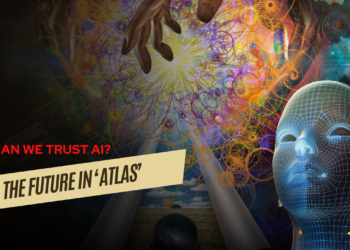No products in the cart.
Exploring the Concept of Destiny and Free Will in Different Religions
This post contains affiliate links.
Destiny and free will are concepts that have fascinated humanity for centuries. They raise profound questions about the nature of our existence and our choices. This article delves into these concepts as understood and interpreted in various religions.
By examining the beliefs and perspectives on destiny and free will in different faiths, we aim to shed light on how these fundamental aspects of human experience are understood and integrated into religious teachings.
From ancient to modern times, religions have provided frameworks and guidance for understanding the interplay between destiny and free will. We draw from multiple sources, including sacred texts, theological insights, and scholarly research, to comprehensively explore this topic.
Through our investigation, we will delve into the relationship between religious beliefs and free will and the various interpretations of determinism in different religions. We will also examine the role of free will in spiritual journeys and explore the concepts of predestination and fate within religious contexts.
While the concepts of destiny and free will may vary across religions, common threads bind them together. Understanding these shared elements and the existing differences can gain valuable insights into the human experience and our place within the world.
As we navigate the complexities of destiny and free will in different religions, this enlightening journey unravels the intricate tapestry of beliefs and philosophies that shape our spiritual understanding.
The Relationship Between Religious Beliefs and Free Will
The concept of free will and its relationship with religious beliefs has garnered significant attention from researchers and scholars. It is believed that one’s religiosity and religious commitment can influence their understanding and beliefs about free will and determinism.
Research Findings
Studies have demonstrated a positive correlation between religiosity and belief in free will. Individuals who adhere to religious beliefs perceive themselves as having more excellent agency and control over their actions. This perception aligns with free will, where individuals can make choices and decisions that shape their lives.
Complexity of the Relationship
However, the relationship between religiosity and determinism is more nuanced. Determinism is the belief that prior causes predetermine events that can be interpreted differently within religious contexts. Some religious traditions embrace a form of divine determinism, where a higher power will predestine the future.
Impact of Religious Beliefs
The impact of religious beliefs on one’s perception of free will can vary. Different definitions and interpretations of determinism within religious traditions can influence individuals’ views on the extent of their free will. Some may perceive their choices and actions as entirely determined by a divine plan, while others may hold a more nuanced belief that incorporates divine influence and personal agency.
Empirical Research and Scholarly Insights
Researchers have conducted empirical studies and analyzed religious texts and teachings to gain a deeper understanding of the relationship between religious beliefs and free will. These investigations provide valuable insights into the intricate interplay between religious beliefs and individual perceptions of free will.
Overall, exploring the relationship between religious beliefs and free will offers a fascinating lens into the complex nature of human existence and the various factors that shape our understanding of personal agency.
Understanding Determinism in Different Religions
In various religions, the concept of determinism encompasses different interpretations and beliefs. Determinism is the philosophical notion that preceding events determine every event. However, its understanding within religious traditions varies significantly.
Some religions emphasize divine determinism, perceiving the future as predetermined by the will of God. The belief in divine determinism suggests that every event in the universe, including human actions, is guided by a higher power. Such religions view divine will as the ultimate driving force behind all events and human beings as instruments carrying out the predetermined plan of the divine.
In contrast, other religions approach determinism from a different perspective. They view determinism as a belief in the interconnectedness of all things. This understanding of determinism suggests that everything in the universe is intricately linked, and every action has ripple effects that influence the future. Within this framework, determinism encompasses the idea that the universe operates according to natural laws, and various factors and choices influence indis.
To further explore the understanding and interpretation of determinism in different religions, let us examine some notable examples:
Hinduism
In Hinduism, determinism is linked to the concept of karma. Karma refers to the law of cause and effect, where one’s previous actions shape their present circumstances and future experiences. According to Hindu philosophy, every action, whether good or bad, imprints the individual’s soul, influencing their future destiny. The Hindu understanding of determinism revolves around individuals having agency and free will to make choices, but the consequences of their past actions bind those choices.
Islam
In Islam, determinism is rooted in the belief in divine decree and predestination. Muslims believe in qadar, which refers to Allah’s divine plan and foreknowledge of all events. According to Islamic teachings, Allah has predetermined everything that will happen in the universe, including human actions. However, human agency and free will are still important. Muslims are encouraged to make choices and exert effort while recognizing that Allah’s will ultimately determine the outcome.
Buddhism
In Buddhism, determinism is viewed through interconnectedness and the law of causality. The concept of dependent origination, or the twelve-link chain of causation, explains how past actions and conditions influence the present moment. Buddhists believe all phenomena arise from various causes and conditions, and every action produces consequences. However, Buddhism also emphasizes the potential for liberation from the cycle of cause and effect through realizing enlightenment and the cessation of suffering.
These examples illustrate how determinism is comprehended and integrated within different religious frameworks. While some religions embrace the concept of divine determinism, others emphasize the interconnectedness of all things. Understanding the diverse interpretations of determinism in various religions provides valuable insight into the complex relationship between destiny, free will, and religious beliefs.
The Role of Free Will in Spiritual Journeys
Free will is an essential factor in the spiritual journeys of individuals, as it grants them the ability to exercise control over their actions and decisions. This capacity for free will is necessary for moral responsibility and personal growth in various religions.
The Importance of Free Will
In pursuing spiritual growth and self-realization, different religions emphasize the significance of free will. They believe that individuals have the power to make choices that align with their spiritual values and goals. Individuals can embark on transformative journeys and shape their spiritual paths through free will.
Encouraging Alignment with Spiritual Values
Religious beliefs and teachings often encourage individuals to make choices that align with their spiritual values. These values serve as guiding principles, directing individuals to adopt behaviors and attitudes that promote spiritual growth and enlightenment.
- Example 1: In Christianity, followers are encouraged to exercise free will by making choices that reflect love, compassion, forgiveness, and obedience to God’s commandments.
- Example 2: Buddhism teaches adherents to practice mindfulness and cultivate positive intentions and actions through their use of free will. This aligns with the belief in karma, which posits that one’s actions have consequences.
Striving for Personal Transformation
By harnessing their free will, individuals can actively participate in their spiritual journeys and strive for personal transformation. Through introspection, self-reflection, and conscious decision-making, they can make choices that align with their spiritual aspirations and facilitate inner growth.
Recognizing Moral Responsibility
Free will also plays a crucial role in moral responsibility within spiritual journeys. By acknowledging their agency and exercising their free will, individuals take ownership of their actions and accept the consequences that arise from them.
In conclusion, free will is highly valued in the context of spiritual journeys. It empowers individuals to make choices aligned with their spiritual values, fosters personal transformation, and facilitates moral responsibility. By understanding the role of free will in different religions, we gain insights into how individuals navigate their spiritual paths and strive for spiritual growth and self-realization.
Exploring Concepts of Predestination and Fate
Predestination and fate are recurring themes in various religions, offering unique perspectives on the relationship between divine will, individual choices, and events unfolding.
In religious beliefs, predestination is the notion that a divine choice predetermines certain life events or salvation. It suggests that our trajectory in life is already mapped out, and our actions merely follow a path preordained by a higher power.
Conversely, the concept of fate suggests an impersonal determining force that may transcend the gods. It implies an inevitable course of events beyond the control of individuals or deities, which governs the universe’s unfolding.
Across different religions, the concepts of predestination and fate are addressed in various ways, highlighting divergent beliefs and philosophical interpretations. Some religions, such as Calvinism within Christianity, embrace the notion of predestination as a core tenet of their faith, emphasizing the sovereignty of God’s will over human decisions.
Others, like Islam, also acknowledge the idea of predestination, where Allah’s divine plan is believed to encompass all aspects of life. In these belief systems, free will coexist with the understanding that ultimate outcomes are guided by a predetermined design.
In contrast, certain Eastern religions, such as Hinduism and Buddhism, approach the idea of fate differently. These traditions view karma, the law of cause and effect, as a determining force that shapes an individual’s experiences and future life. While karma does not prescribe a specific predetermined fate, it emphasizes the consequences of actions and their influence on future circumstances.
Therefore, exploring the concepts of predestination and fate within different religions provides valuable insights into the complex interplay between determinism and the exercise of free will. It enriches our understanding of how individuals navigate their spiritual journeys and make choices that align with their religious beliefs while acknowledging the broader forces that may influence their lives.
Perspectives on Free Will and Determinism in Eastern Religions
Regarding free will and determinism, Eastern religions offer unique perspectives that differ from other religious traditions. In particular, Hinduism and Buddhism have intricate beliefs and practices that explore the delicate balance between individual agency and the influence of external forces.
Karma: The Key to Understanding
One fundamental concept in Eastern religions, including Hinduism and Buddhism, is karma. Karma refers to the accumulation of actions and their consequences in this lifetime and future. Individual choices and actions are believed to create a karmic imprint that shapes the course of one’s life and subsequent rebirths.
Within the framework of karma, the idea of free will emerges, albeit with certain limitations. Individuals are believed to be able to make choices and decisions, allowing them to shape their destinies somewhat. However, these choices are influenced by the accumulated effects of past actions, both from their current and previous lives.
Harmony Between Free Will and Determinism
Eastern religions strive to reconcile the seemingly contradictory concepts of free will and determinism. They emphasize the interconnectedness of all beings and phenomena, suggesting that individual actions are not isolated occurrences but part of a complex web of interdependent causes and effects.
While individuals may be free to make choices, these choices are seen as part of a larger pattern influenced by karmic forces. This perspective acknowledges that determining factors beyond immediate control shape present circumstances and future outcomes.
Guidance for Spiritual Journeys
Understanding the interplay between free will and determinism is crucial for navigating the spiritual journey in Eastern religions. Teachings and practices guide individuals seeking enlightenment and liberation from the cycle of rebirths.
These traditions emphasize self-awareness, mindfulness, and cultivating virtuous actions to accumulate positive karma and break free from the cycle of suffering. They encourage individuals to exercise their free will by making conscious choices aligned with moral and spiritual principles while accepting the influence of karmic forces.
- Cultivating mindfulness through practices like meditation
- Engaging in compassionate actions towards all sentient beings
- Studying sacred texts and philosophical teachings to gain wisdom
- Seeking guidance from enlightened masters and spiritual mentors
By practicing these principles, individuals in Eastern religions aim to harmonize their free will with the broader deterministic forces of karma, seeking spiritual growth and liberation from the cycle of rebirth.
Conclusion
The exploration of destiny and free will in different religions reveals the intricacies and diverse perspectives surrounding these concepts. While there are commonalities in the belief that individuals can make choices and shape their lives, the understanding and integration of destiny and accessibility will differ across religious teachings.
Through research, theological insights, and philosophical perspectives, we have gained a deeper understanding of how destiny and free will intertwine with the human experience. In many religions, we have seen that destiny is often viewed as a predetermined path guided by a higher power. In contrast, free will is the individual’s capacity to make choices within that framework.
Exploring different religions has illuminated the complex relationship between destiny and free will. These concepts play a fundamental role in shaping spiritual journeys and moral responsibility. Examining these ideas in various religions deepens our understanding of different faiths and stimulates reflection on our own beliefs and choices.
In conclusion, destiny and free will continue to be a subject of contemplation, debate, and interpretation across different religions. While each religion offers unique insights into the relationship between these concepts, the acknowledgment of individual agency and the influence of a higher power remains constant. By embracing the diversity of beliefs and perspectives surrounding destiny and free will, we can foster a richer dialogue and understanding of the human quest for meaning and purpose.
FAQ
How do religious beliefs impact beliefs about free will?
Research suggests that religiosity and commitment can influence beliefs about free will and determinism. Studies have shown a positive correlation between religiosity and belief in free will. However, the relationship between religiosity and determinism is more complex and depends on the definitions of determinism being considered.
How is determinism interpreted in different religions?
Determinism is understood and interpreted differently in various religions. Some religions emphasize the concept of divine determinism, where the future is seen as predetermined by God’s will. Other religions view determinism as a belief in the interconnectedness of all things. The interpretation of determinism varies based on religious traditions and teachings.
What is the role of free will in spiritual journeys?
Free will play a significant role in pursuing spiritual growth and self-realization. It is often seen as the ability to make choices aligned with one’s spiritual values and goals, which is necessary for moral responsibility. Different religions emphasize the importance of exercising free will in the spiritual journey.
How do different religions address the concepts of predestination and fate?
Predestination and fate are concepts explored in many religions. Predestination refers to the belief that certain life events or salvation are predetermined by divine choice. Fate suggests an impersonal determining force that may transcend the gods. Different religions have varying perspectives on these concepts, often integrating them into their teachings and understanding of free will.
How do Eastern religions reconcile free will and determinism?
Eastern religions, such as Hinduism and Buddhism, often incorporate the concept of karma to reconcile free will and determinism. Karma influences the cycle of birth, death, and rebirth and acknowledges the influence of past actions. These religions teach individuals to navigate their spiritual journeys while recognizing the impact of their own choices and actions.
What is the significance of exploring destiny and free will in different religions?
Destiny and free will are complex and varied across different religions. While there are common threads and shared beliefs, there are also significant differences in interpreting and integrating these concepts. Exploring destiny and free will within different religions provides valuable insights into the human experience and the fundamental aspects of human existence.
This post contains affiliate links.











